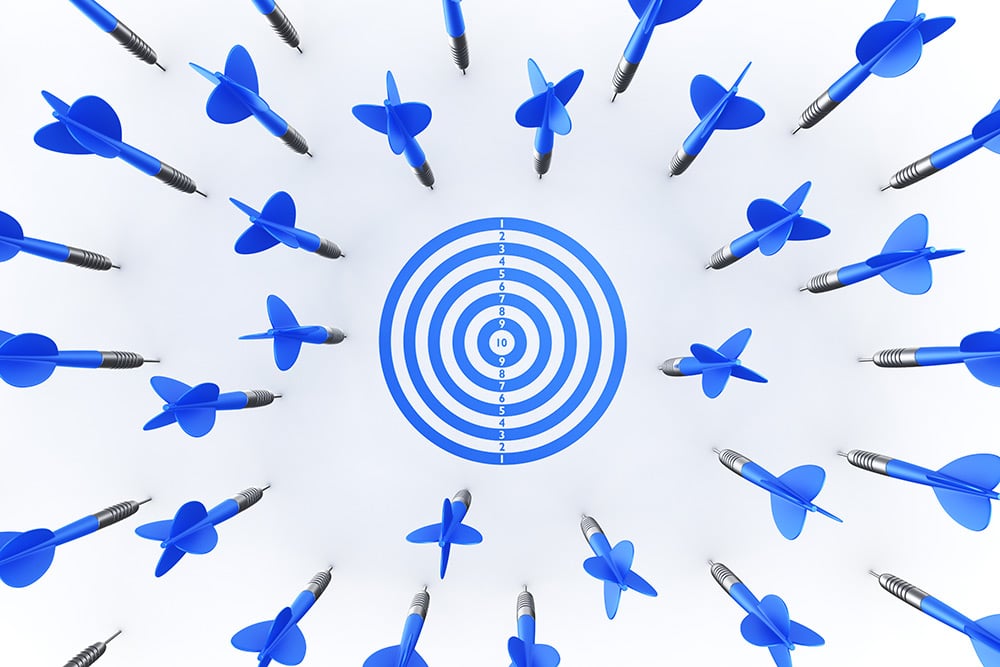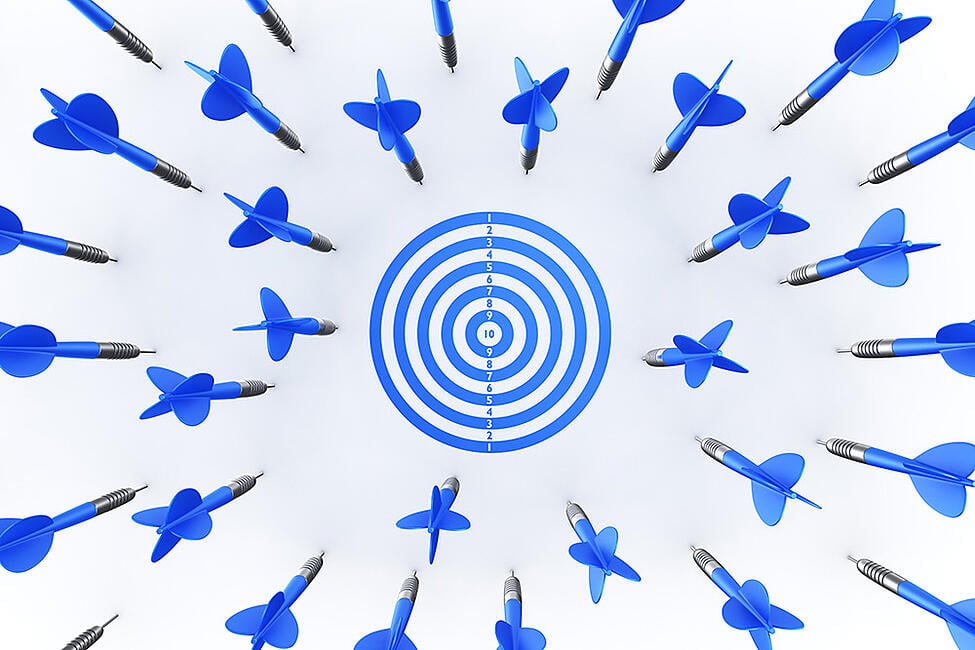
Efficiency, effectiveness and the role of CRM
Quick – what’s the difference between efficiency and effectiveness? Don’t worry, these two words can confuse us. Efficiency measures how fast you do something, while effectiveness tells you how useful your efforts are towards reaching an intended end result.
In short, effectiveness looks at outcomes and results while efficiency focuses on completing tasks more rapidly.
In sales, the classic example is that of a sales person doing lots of cold calling but not closing enough business. She’s keeping herself busy and is subsequently efficient at calling, but is ineffective at reaching sales targets.

The more complex your sales are (ranging from transactional sales of commodity products to high-ticket, high-risk b2b solutions), the more important it becomes to be very effective and not waste time and resources on the wrong activities.
CRM is efficient, but not effective
Looking at the CRM market, it is very confusing and filled with tons of very similar products. When invented back in the 80’s, the promise was to create a central database for all contacts and activities. The leading players delivered on their promise and, to date, most companies have built tremendous data repositories. Unfortunately, they add little value beyond the basic premise and too often just become graveyards of information.
(See a side-by-side comparison of Membrain vs other CRMs »)
Given their intended use, it is not surprising that companies struggle to increase sales effectiveness using them. By design, they are suited to increase efficiency, not effectiveness. There’s little focus on outcomes and guiding sales people on what to do, how, with whom and when (unless the individual using the system already knows the most effective way and never lets sales projects slip).
Learn from the best and replicate = map the process
No matter what you sell, you likely have one or more sales people in your team outperforming the others. They are simply more effective. But how do they do it? Are they simply better skilled? Do they communicate differently with prospects and customers? Is their process different? Is their timing different – do they do similar activities, but with a different timing and pace? Are they asking different questions? Are they facilitating the buying process instead of pushing solutions?
As a sales leader, these are questions you need to address to create a winning model – a visually understandable representation of your best practices that results in more business. With this in place, you’ll enable others to replicate the successful behaviors of your top performers. By getting this one thing right, you will create great leverage and a platform for continuous improvement.
Technology does not do all the lifting
It is easy to get blinded by new technology, which promises to automate all the things we don’t like doing. When “Sales Force Automation” was first added to CRM systems, many thought it would make them more effective. However, providing tools on how to be effective was not included in the vast list of features.
Let’s get one thing straight - technology alone won’t solve your sales problems, or sell for you. From where I stand, “sales force automation” is an oxymoron – why do you need a salesforce if you can automate it?
The same applies to the latest technology buzz: marketing automation. Don’t get me wrong, it is an amazing concept. However, unless you’re selling a product with low perceived risk that your buyers can purchase online, you will at some stage need to engage with your buyers and facilitate a buying decision. If you’re in b2b sales, you most likely need to build and communicate value for your customers during your sales process to assist prospects in making the right investment. In this space, the role of technology is to support your efforts and make your sales team more effective over time.
Process drives behavior
What role does management play in this process? Primarily, they must help establish the right sales infrastructure (processes & tools) and enable their sales leaders to assist and coach sales people to greater effectiveness. Merely reporting on what has already been done in a fancy rolodex is no longer enough. We need to create a map and provide the directions that effectively gets us from where we are to where we need to be. These maps and directions will allow you to on-board new sales people faster, help underachievers up their game and close the gap between your top producers and the rest of the team. All-in-all, improving sales effectiveness will directly impact your bottom line and help you become more competitive.
Develop your sales people to grow your business
Along the selling journey there will be hurdles some sales people are unable to overcome. That’s the time for your sales managers to step in and coach. To do this with any type of quality, they need a platform that provides an overview of the selling landscape. With this in place, they will know who to coach when and about what.
Focus on sales effectiveness, not just efficiency
In conclusion, rather than focusing on information gathering and task efficiency, shine the spotlight on effectiveness. Make sure your sales teams are doing the right things at the right time with the right people. Over time, this will create successful behaviors and a winning sales culture. And – as has often been proven – culture beats process!

By George Brontén
George is the founder & CEO of Membrain, the Sales Enablement CRM that makes it easy to execute your sales strategy. A life-long entrepreneur with 20 years of experience in the software space and a passion for sales and marketing. With the life motto "Don't settle for mainstream", he is always looking for new ways to achieve improved business results using innovative software, skills, and processes. George is also the author of the book Stop Killing Deals and the host of the Stop Killing Deals webinar and podcast series.
Find out more about George Brontén on LinkedIn








